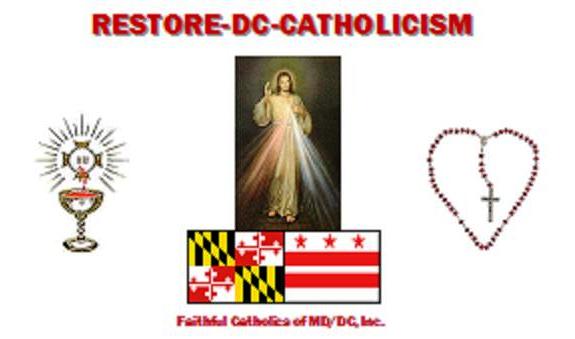As you read this post, please have open the bulletin insert in question; it is here, on page 5, right-hand column. Before I proceed, I voice agreement that our devout assistance at Holy Mass is imperative to our receipt of the graces that are present at Holy Mass. However, these graces are present owing to the nature of the Mass itself. No other person present can impede my reception of these graces, provided that I am properly disposed.
First, what is the Mass? Let's look at the clear, concise answer from the Baltimore Catechism. That question, by the way, is Question 263 of the Baltimore Catechism. The answer is - again from that catechism - The Mass is the unbloody sacrifice of the Body and Blood of Christ. Here are more questions and answers from the Baltimore Catechism delving into the nature of the Mass.
Here are some more from EWTN. Take special note here of Question 360, and part (a) of the answer: "Christ, though invisible, is the principal minister, offering Himself in the Mass. The priest is the visible and secondary minister, offering Christ in the Mass". This statement of fact is why this statement from the SJN bulletin is flat-out incorrect: "Mass at St. John Neumann and in any church is the joint effort of all the people in the assembly, not just the priests and special ministers who are, first of all, also members of the assembly. Every member of the parish assembly has a serious responsibility to help make the Mass a life-giving sacramental experience. To the degree that any member of the assembly does not work to make the Mass life-giving, to that degree the sacramental signs fail and the Eucharistic sign becomes less than what it should be." The rather modern error that seems to be the undercurrent of this paragraph is the error that the roles of clergy and the roles of laity are on a par with regard to the Mass. That's simply incorrect. Christ is the primary minister and the priest is the secondary minister. That's it! No more "ministers"! This is why a priest can say a private Mass, by himself. The presence of laity have absolutely no impact on the sacramental validity of the Mass. Conversely, no priest means no Mass - no matter how many devout laity are gathered.
I just don't have time to elaborate on all the error that is contained herein. Suffice it to say that it is absolutely false to equate the role of those who've received the Sacrament of Holy Orders with the role of the laity. It is NOT our presence that is "the transforming energy of all sacramental celebrations". A Sacrament is an outward sign instituted by Christ to give grace (again, from the Baltimore Catechism). What's with this "transforming energy" new-age talk?
But in going down, we see the lists of ushers, readers, musicians, etc. "Priest" is thrown in the laundry list, and there's no particular order. That's simply wrong. It is the priest who is the minister, acting as alter Christi. No lector nor greeter can do that.
I agree that one's lack of attention can impact the grace that they are able to receive from Mass. So too can a faulty understanding of what Mass is.
Showing posts with label difference between clergy and laity. Show all posts
Showing posts with label difference between clergy and laity. Show all posts
Sunday, April 6, 2014
Subscribe to:
Posts (Atom)








